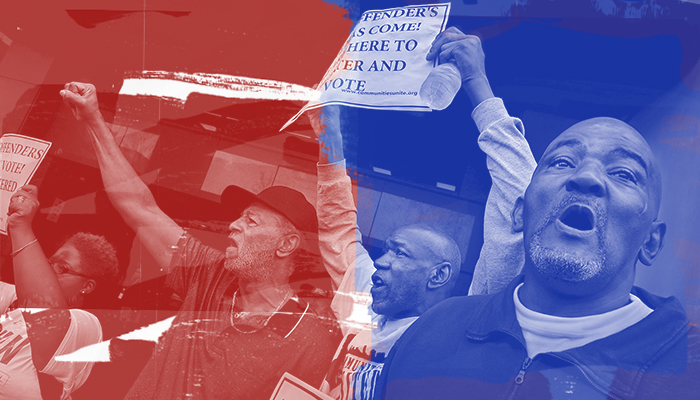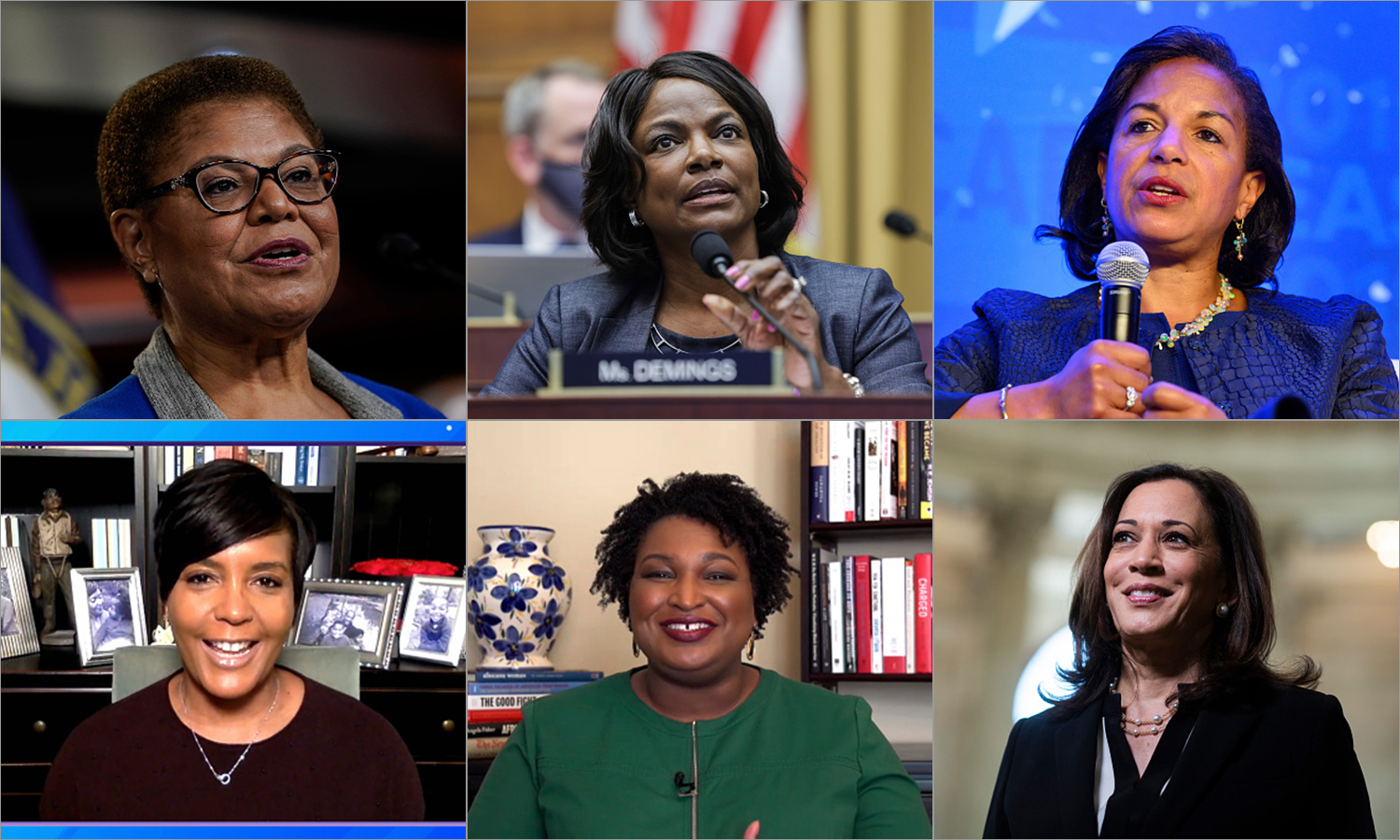Restoring Felons' Rights To Vote: Explaining What Ex-Prisoners Should Know
A Truth About The Formerly Incarcerated: They Have The Right To Vote

Source: iOne Creative
As a formally incarcerated individual, I know firsthand how difficult it can be to reintegrate back into society. Although you’ve served your time behind bars, the challenges that follow in the free-world sometimes feel like another sentence. It isn’t easy. There are difficulties obtaining everything from housing to employment with a criminal record, and let’s not forget the open criticism about past mistakes — you’re hit on all fronts. Worst of all, you’re face with numerous legal stringencies, many of which are complicated and tough to untangle. Consequently, the formerly incarcerated often feel marginalized on multiple levels, and like their “voices” or “votes” no longer count. However, in reality, that is far from the truth as many people just don’t know their rights as voters.
In 2017, I was released after serving a 12 1/2-year sentence in federal prison for bank fraud. As a New York resident was was formerly incarcerated, I simply assumed I lost my right to vote — isn’t that what the media tells us? It wasn’t until I stepped into the lane of advocacy for the formerly incarcerated when I discovered that my assumption was in fact false. In New York State, individuals on probation are not restricted from voting. In fact, in 2018, Gov. Andrew Cuomo signed an executive order restoring the right to vote for New Yorkers on parole. Therefore, in New York, as soon as a person is released from prison, he or she can vote.
The guidelines for voting rights of the formerly incarcerated vary from state to state, which can make knowing these laws difficult. Even more confusing, states sharing borders often have extremely different voting guidelines. For example, in Maine and Vermont, formerly incarcerated individuals never lose their right to vote, meaning they can still vote while in prison. However, in neighboring states like Massachusetts and Rhode Island, voting privileges are revoked while incarcerated but automatically restored upon release. Then there are states like Mississippi and Tennessee, where the formerly incarcerated are unlikely to have voting privileges restored unless it is granted by the governor. With such drastic differences between states, it’s hard to keep up with them all.
So let’s break it down; here’s the truth.
As previously mentioned, the formerly incarcerated in Maine and Vermont can all vote, even while in prison. Formerly incarcerated individuals in 18 states and the District of Columbia receive automatic restoration of voting privileges after their release from prison. These states include Colorado, Hawaii, Illinois, Indiana, Maryland, Massachusetts, Michigan, Montana, Nevada, New Hampshire, New Jersey, New York, North Dakota, Ohio, Oregon, Pennsylvania, Rhode Island and Utah.
In a separate 19 states, the formerly incarcerated automatically lose their voting rights while incarcerated and typically extends to while they are on probation or parole. After this time period, their rights are automatically restored. Those states include Alaska, Arkansas, California, Connecticut, Georgia, Idaho, Kansas, Louisiana, Minnesota, Missouri, New Mexico, North Carolina, Oklahoma, South Carolina, South Dakota, Texas, Washington, West Virginia and Wisconsin.
While most states are considered liberal in restoring the voting rights of formerly incarcerated individuals, there are still some states that hold stringent restrictions for this segment of the population. Those states include Alabama, Arizona, Delaware, Florida, Iowa, Kentucky, Mississippi, Nebraska, Tennessee, Virginia and Wyoming. That’s where the formerly incarcerated often lose their voting rights indefinitely for some crimes, may require a governor’s pardon to have them restored, require a waiting period after completion of parole or probation and may require additional action before those rights are restored.
With approximately 24 million formerly incarcerated individuals in the United States, representing almost 8 percent of the population, there has been a surge of advocacy for them. These efforts have led to significant changes in voting rights policy in recent years. In 2016, for example, Maryland’s legislature enacted HB 980 and SB 340 to automatically restore voting rights to the formerly incarcerated upon completion of their terms of incarceration. Soon to follow were states like Wyoming, Florida and New Jersey, the latter of which in December Gov. Phil Murphy signed a bill restoring the voting rights of more than 80,000 individuals on probation and parole.
It’s a little trickier in Florida, though.
In 2018, a constitutional amendment was initiated in Florida to restore the right to vote for the formerly incarcerated, excluding those who served time for murder or a felony sexual offense. Those individuals have to petition the governor for restoration of their voting rights, which is determined on a case by case basis. But when Amendment 4 was passed, Florida’s Republican-led Legislature passed a bill signed by Gov. Ron DeSantis stipulating that formerly incarcerated individuals must pay off all their fines, restitution and other legal financial obligations before their sentences can be considered fully served. A trial began Monday to permanently undo the state law that requires the formerly incarcerated to first settle their financial debts before regaining the right to vote under Amendment 4.
Although this is mostly great news for the formerly incarcerated, unfortunately, many of these individuals have no clue that they are rightfully allowed to vote. Consequently, a large portion of this population has been left out of democracy. As a formally incarcerated individual, I have decided to use my voice and my platform to speak up for and educate others about our population. Although people make mistakes, they shouldn’t be penalized forever, especially after a debt is repaid to society.
I want people to know that formerly incarcerated individuals do have rights and we have the ability to exercise them. As our community galvanizes, we can become a force that has the power to create meaningful change in our country, particularly around issues that directly impact our community.
For more information about state policies for restoration of rights for the formerly incarerated, visit National Conference of State Legislatures.
Jamila T. Davis is an author, activist and television personality. Her story has been featured on various media outlets including CBS, BET, Forbes & Black Enterprise. Follow her on Instagram or Twitter @jamilatdavis or on Facebook @authorjamilatdavis. Visit her website at www.jamiladavis.com.
SEE ALSO:
The Black Ballot: Where Politics And Culture Collide
Here’s How Badly Florida Wants To Keep Former Felons From Voting
5 Modern-Day Voting Rights Heroes Everyone Should Know


















